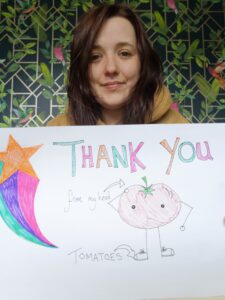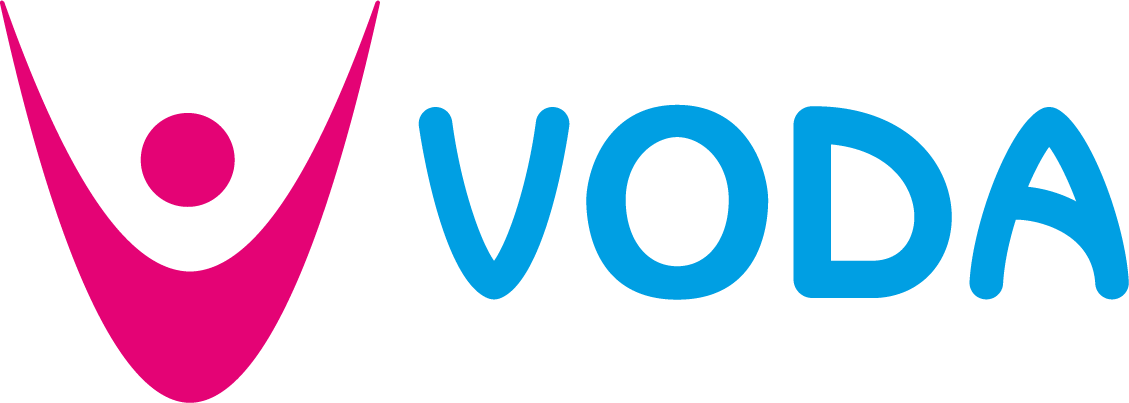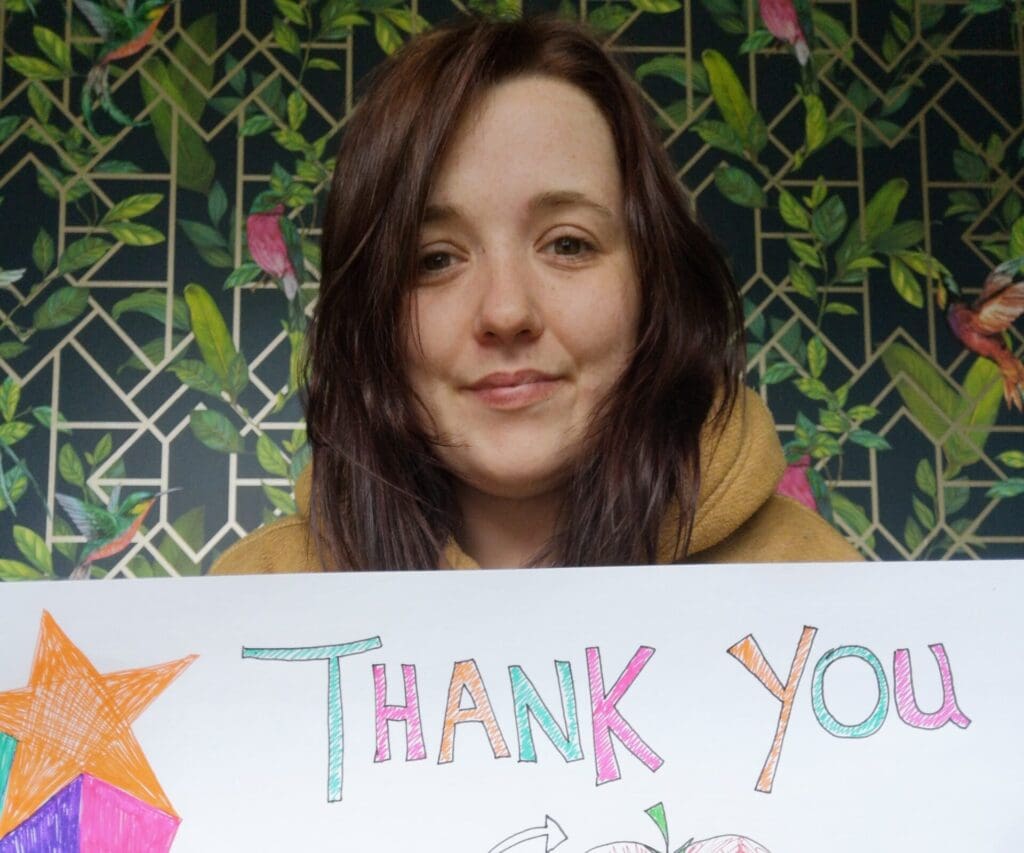 Josie Robinson, VODA’s Ending Loneliness Project Coordinator talks about the drastic changes in her daily working life since the start of the COVID-19 pandemic and how the challenges it brings have forged new innovative ways of working, team bonding and the addition of three new adopted Grandma’s in her life.
Josie Robinson, VODA’s Ending Loneliness Project Coordinator talks about the drastic changes in her daily working life since the start of the COVID-19 pandemic and how the challenges it brings have forged new innovative ways of working, team bonding and the addition of three new adopted Grandma’s in her life.
How has your role changed due to COVID-19?
Pre COVID-19 my role was focused around partnership work to tackle loneliness and social isolation in North Tyneside. I managed and supported the Good Neighbours Project which worked alongside the likes of Age UK North Tyneside, North Tyneside Carers’ Centre, Citizens Advice and The SIGN Directory. The purpose of my role was to find innovative ways of working within the partnership and beyond to reach the boroughs most vulnerable and isolated residents. Prior to COVID-19 I had little direct involvement with the day to day running of VODA’s Good Neighbours project in terms of coordinating volunteers and arranging tasks. Instead I was focusing on awareness raising and social action activity to reduce isolation and loneliness. I was responsible for a scheme called ‘Happy to Chat’ which was an opportunity for people to come together, meet someone new and have a cuppa. This was a roaring success when we were allowed within two metres of others, with 40-50 people attending a weekly session at the Beacon Centre in North Shields.
Since COVID-19 the main change to my role is that I am now working remotely from home, which ironically leaves me quite isolated! However; here at VODA we responded to the crisis pretty quickly and my role formed a new team of staff who have been channelling their skills and enthusiasm into evolving the Good Neighbours Project in response to the pandemic.
My days are now filled with chatting to our amazing brand-new team of Good Neighbours Volunteers and responding to referrals for requests for help. I take between 10 and 20 shopping lists a day from local people who are unable to get out and do their own shopping and match them with a volunteer local to them.
What lessons have you learned?
Since we’ve all had to adapt to working differently, and everything has been heightening in terms of demand for the project, volunteer involvement; I’ve learnt that I actually respond quite well in a crisis situation, but that this isn’t sustainable in terms of practical working, and now understand the importance of a work routine and taking frequent breaks… so I now no longer dream about shopping lists!
Another thing that has totally blown me away has been the power of the local community, every day I am absolutely astounded by the determination and compassion from our team of volunteers. They are the ones out there changing people’s lives and building relationships with isolated and vulnerable residents. It’s a way of working that I hope to continue to build on and I think VODA can provide volunteers with the tools to empower them to change the local community for the better and make sure that North Tyneside is always the best place to live!
What do you think you would have done differently?
I’m not sure I would have done anything differently; every decision we made since the start of lockdown to respond to the pandemic has shaped the project and we’ve learned a lot. Even those decisions that might not have been the right ones, allowed me to reflect and understand the implications of each decision.
How do you see your role as we move towards the recovery phase?
I’m really keen to help take Good Neighbours into the next phase of delivery. I’m aiming to catch up with the Ending Loneliness partnership, share success stories, learning opportunities and ideas for moving forward. I’m also really excited about the partnership with the Local Authority support hub and how we can evolve ‘Happy to Chat’ to become more virtual for those who are housebound. I’ll also be working closely with Claire Howard from VODA, as her role entails working in partnership with local GP’s and health services to identify isolated individuals and be able to offer activities and support to those people.
What do you feel is your biggest achievement during this crisis?
My biggest achievement has been being able to be part of an organisation on the frontline of the COVID-19 response. The entire staff team at VODA has been able to respond so quickly by creating innovative ways of working. We’ve managed to create a system that works, and is really making a difference to people’s lives, the relationships we’ve built with people just over the telephone have been incredible (I now have at least 3 adopted grandmas!). I’ve always known that we’re good at what we do, but this has really solidified it for me. I think the borough is also now aware of the power of the voluntary and community sector as a whole and that makes me really proud.
What was your biggest challenge (so far)?
The sheer volume of requests for help that we had in the first 6 weeks of the response was on another level. At times it felt like we were fighting a losing battle as for every one referral you completed, another 15 would be added. That was really tough to manage, but we just had to focus our efforts on those referrals that were most urgent. It also helped to be reminded that we’re only human, and we can only do what we can do. So now gone are the days working ludicrous hours and everything is a bit more settled.
Anything else you would like to add?
Just that I’m really excited about the future of Good Neighbours, the Ending Loneliness Partnership and VODA as a whole. The silver lining has been that we have found a new way of working, an ability to reach more people and have such an incredible team of volunteers alongside us that are changing people’s lives every day. Plus I am very much looking forward to organising a big celebration event for all the volunteers, beneficiaries and partners of the project.

